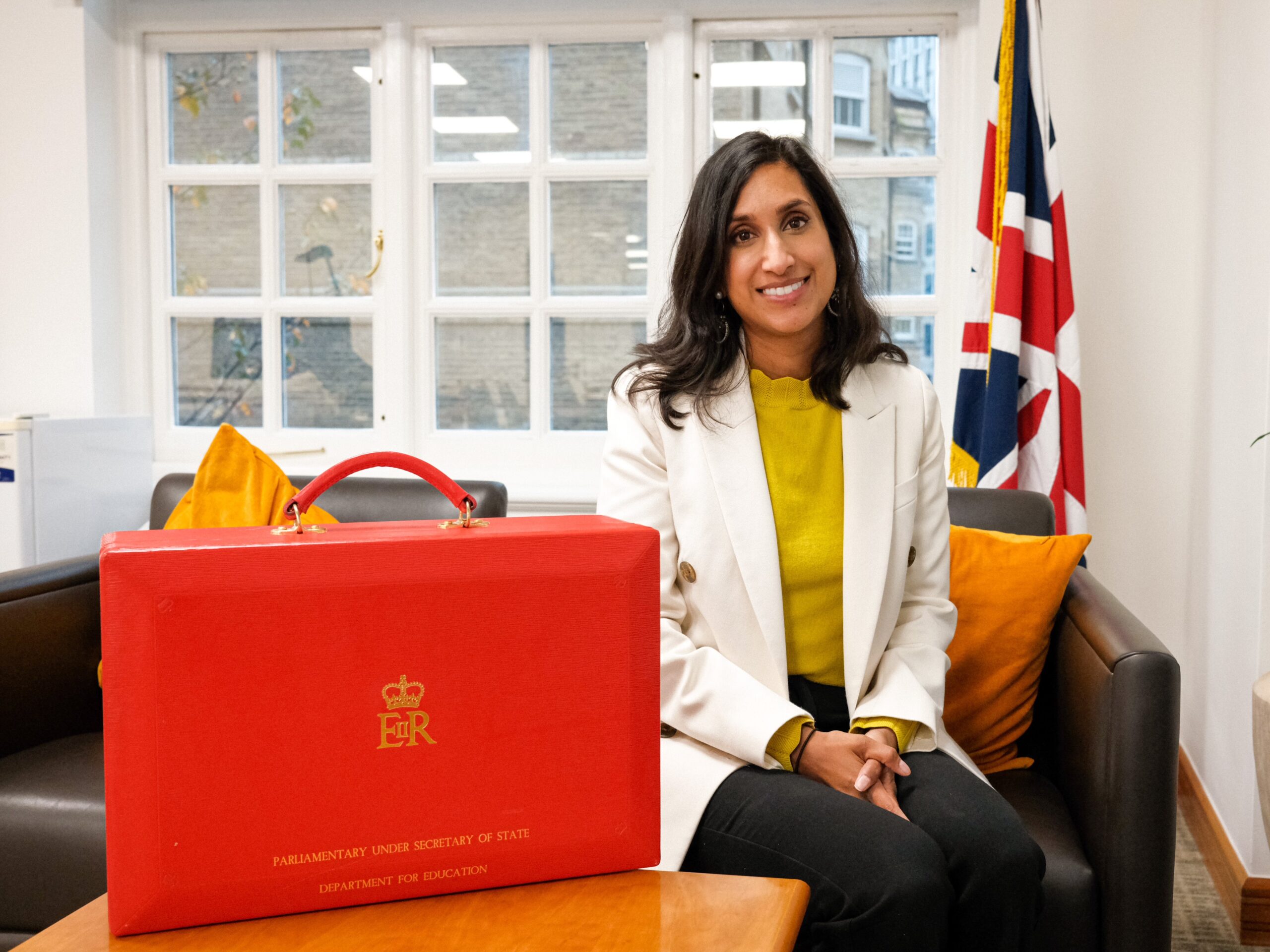Last week’s mini cabinet reshuffle saw Grant Shapps leave the Department for Energy Security and Net Zero (DESNZ) to become Defence Secretary. His replacement is Claire Coutinho, the MP for East Surrey. So who is she, and what can we expect from her tenure at DESNZ?
No energy or net-zero background
Claire Coutinho’s previous role was as a junior minister in the Department for Education. She was in the role of parliamentary under-secretary for children, families and wellbeing for less than a year. Her previous role was a five-week stint in the Department for Work and Pensions under the short-lived Liz Truss premiership. Her career before being elected to Parliament in 2019 was in the world of finance.
Votes with her party
Coutinho’s voting record is one of a party loyalist – the stats say that on the vast majority of issues, she votes the same way as other Conservative MPs. Unfortunately, in many cases this means voting against measures suggested by other parties that would have had a positive impact on the climate. It also means supporting measures that water down action on our net zero goals. She voted against a plan to reduce most transport emissions by 2030, against making climate impact statements a condition for financial assistance and against requiring ministers to consider the UK’s net zero target when establishing environmental subsidy schemes.
More recently, she has voted against requiring public authorities to act in accordance with the “polluter pays” principle and against a measure to protect our peatlands (a vital carbon sink).
Green finance
The Financial Stability Board created the Task Force on Climate-Related Disclosures (TCFD) because it is aware that businesses’ poor disclosure of climate impact is a serious financial risk, not just to individual investors but to the economy as a whole. The UK government now requires large businesses to carry out climate reporting that meets the TCFD guidelines. It’s part of an overall strategy to increase transparency in the finance sector and catalyse green investment.
One measure that would have helped this goal was a proposed amendment to the Financial Services Bill requiring the Financial Conduct Authority to consider the UK’s emission reduction goals when setting risk requirements for investment firms. However, Conservatives voted against this amendment and Claire Coutinho chose her usual path of voting with her colleagues.
Little information
Overall, there is very little to tell us how Coutinho will tackle her new responsibilities. Her previous contributions to debates in Parliament have understandably been on topics connected to her previous role, such as childcare and education standards.
Her website at the time of writing (September 2022) says that “protecting the environment” is a priority for her locally, but does not mention climate change or energy security. It remains to be seen how this fairly new MP will do in a role that itself has only existed for less than seven months.













